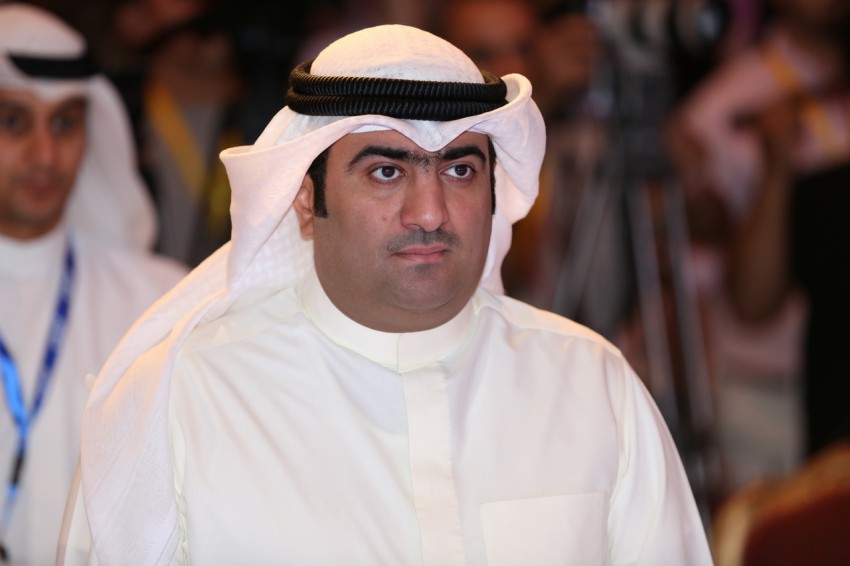Minister Khalid Naser Al-Roudan discusses initiatives to enhance trade and to promote SMEs and entrepreneurship, the New Kuwait Vision 2035 plan, and the bilateral relationship with the U.S., which, he says, is getting “stronger by the day”.

Can you please explain how Kuwait's heritage as a trading country – connecting the East and the West – influenced the current Commerce and Industry current agenda?
Kuwait is a country of old merchants. Before discovering oil, the country was a vibrant commercial hub at the heart of the Arabian Peninsula dating back to the 18th century. Our geographic proximity to Iraq, Iran and Saudi Arabia makes us a strategic partner for Western companies wanting to expand in the region. This strategic location is particularly important now that reconstruction efforts are to be conducted in Iraq, and that Western companies are in need for a politically and economically stable location to champion these efforts in a highly tense surrounding. Additionally, Kuwait’s history of trade and access to East Asia helps it sustain its history of connecting the East and the West.
What are some of Kuwait’s top initiatives or projects during 2018-19. Which initiatives do you consider will implicate a turning point for Kuwait in regards to trade?
Within the scope of ‘New Kuwait strategy 2035’, Kuwait is attempting to diversify its economy to be less dependent on oil revenues. This requires work on a multitude of fronts; MoCI is championing initiatives that are in line with this strategy:
What are the Ministry’s goals for improving Kuwait’s commercial and economic activities ahead of Vision 2035?
Within the framework of the New Vision – Kuwait 2035, we aim to transform our country into a major financial and commercial hub in the region.
The ministry aims at diversifying and growing the Kuwaiti economy in order to increase the participation of the private sector to the GDP, create new jobs and increase public revenues. Consequently, the ministry is encouraging foreign companies to invest in a wide range of sectors, including high-tech, creative, logistics and manufacturing industries. International companies can benefit from multiple incentives, whether through taxation or full ownership of the enterprise. Additionally, MoCI’s strategy aims at achieving an innovative, inclusive and resilient commerce and industry ecosystem, where Kuwaitis can create and scale-up their business activities, with a focus on e-commerce and new industries.
What strategies could be implemented in order to enhance the commerce and trade?
In an effort to enhance Kuwait's commerce and trade sector, MoCI is trying to prepare Kuwait to face local, regional and global challenges through adopting the following strategies:
How will initiatives help develop national products and promote Kuwaiti exports – in industrial and Arab markets?
The Kuwaiti government is creating incentives for local industries and SMEs in order to promote national products. MoCI is also adopting a proactive approach in developing trade relations with strategic countries to promote Kuwaiti exports. This will be facilitated through establishing trade bureaus with strategic trade partners, and through promoting national products through more international trade fairs and enhanced cooperation with different countries regionally and internationally.
What is your perspective on the bilateral relationship between the U.S. and Kuwait?
Half a century after the establishment of the diplomatic relationships between Kuwait and the United States and 30 years after the US helped Kuwait in our quest to independence and sovereignty, the bilateral relationships between the two countries are growing stronger by the day. In 2004, our efforts to advance our mutual trade plan, economic visions and political ties resulted in signing a trade and investment framework agreement, followed in 2016 by launching the U.S.-Kuwait strategic dialogue (USKSD).
2016 marked an exemplary milestone when the total U.S.-Kuwait trade reached US$6.6 bn. Today, as Kuwait sets its national long-term development plan as part of Vision 2035 to build a diversified economy, our focus is to strengthen our foreign direct investment and build stronger trade relations with the US and other allies and strategic countries. And that is why we look forward to the prospect of increasing those investment and trade ties with the US. The momentum is there. Kuwait's current direction to develop business includes supporting the local innovation and SME ecosystem, enhancing industry to increase its competitiveness, providing incentives for new strategic sectors, and developing and partnering with international companies to implement mega-projects. All these developments that we are witnessing today provide a solid ground for the US to play even a bigger role in our development efforts whether through facilitated investments in a wide range of sectors, knowledge exchange, and incentivized cooperation with our SME sector. At the same time, Kuwait is committed to being a strong ally to the US through investment, liberalizing and diversifying our economy, and supporting the US in the fight against terrorism.
What is your professional background and how has it influenced you as Kuwait's Minister of Commerce and Industry?
I have always identified as a visionary who is driven by my belief in the potential of my country and its young people. As a Minister of Industry and Commerce, my vision for the Kuwaiti economy is to transform it into a more liberal, inclusive and socially-just one.
My academic background in business and finance, coupled with a successful experience in the private sector and a history of activism, has had an influential impact on the role I play in the ministry and the reforms I work on implementing on both the micro and macro scale. Within one year of my mandate, we were able to reduce the companies’ registration time from three months to three days, legalizing “Home Businesses” and implementing multiple policy initiatives within the reform strategy we have put in place. My plan is to contribute to Vision 2035 and work on transforming Kuwait into an economic and logistics hub for the MENA region, maximizing on the Kuwaiti and Arab talents to innovate and start their own businesses.
0 COMMENTS